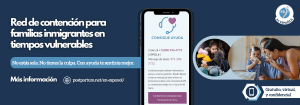Becky’s Story
At PSI, we understand that storytelling has the power to save lives, and we are honored to provide a space for survivors to share their stories. This article is part of a subsection of the PSI blog dedicated to survivor stories. Please note that this story has not been edited, and caution is advised as distressing themes related to perinatal mental health may be present. If there are specific trigger warnings for an article, they will be listed below. Links to resources can be found at the bottom of this page.
Trigger warning: intrusive thoughts about infant death
Living in a Horror Movie
It must have been the 20th time I watched my daughter die that day. A few weeks postpartum, still in a diaper, operating on three non-consecutive hours of sleep, I sank to the floor sobbing and hyperventilating. I was living in a horror movie, but I was the only one who could see it. I regretted future decisions that hadn’t yet been made and mourned my daughter as though she had actually died. She is my entire heart, and multiple times a day I had to watch her be ripped away in the most gruesome ways.
Surely it was the hormones and sleep deprivation, I told myself. All new moms worry about their babies. I continued to tell myself this while I gradually created more rules around my fears. Normally a fiercely independent person, my world became smaller and smaller. I couldn’t go near the balcony with my baby so she wouldn’t fall to her death, and I certainly couldn’t give her a bath alone or she would drown. I couldn’t bring her out in public or she would be kidnapped, and if I didn’t check her car seat straps at least five times, she would die in an accident. If I sent my daughter to daycare, she would die at the hands of a staff member. When I checked her in the crib, she would have died from SIDS.
I struggled to be around other people because I was certain that a contagious illness would lead to her death. As a nurse practitioner, my mind had plenty of traumatic real-life images to work with. There was a constant barrage of graphic, horrific videos playing in my mind of my worst nightmares coming true. I was sure that they would eventually happen, and that it would be my fault when they did.
Seeking Help
My daughter’s pediatrician warned me to make sure to stay on top of my anxiety, citing “what’s been in the news” as an example of what could happen if I didn’t (presumably referencing the unimaginable tragedy in Duxbury, MA). Another provider simply asked (after I had filled out the postpartum screening honestly), “Are you having fun?” They ask if you have thoughts of self-harm, but never how many ways you’ve had to watch your most cherished loved ones die or if you think it might be best if you just evaporated. They don’t ask if you can recognize yourself. People tell you, and you see on social media that everyone has “intrusive thoughts,” so it must be normal.
After several weeks of increasingly frequent and disturbing intrusive thoughts, I finally told my husband and my therapist. My then-therapist said that she believed I had postpartum obsessive-compulsive disorder (OCD), but dismissed it as being due to hormones and said that I needed to let the thoughts pass like the current in a river – “You don’t need to jump in after every thought.” It seemed like nobody could see that I had already been dragged in and was drowning.
Misunderstanding OCD
Even as a healthcare provider I unfortunately had ridiculous but common misconceptions about what OCD is. My first thought was that I hate cleaning, so that couldn’t really be it. What I didn’t understand was that OCD presents in many different ways. This often leads to misdiagnosis and inappropriate treatment. There are often years of delay between symptom onset and diagnosis, during which time dysfunction worsens. Perinatal OCD can affect both the birthing and non-birthing parent, and may be missed because it is attributed to postpartum depression or anxiety, or worse, that it’s just a normal part of being a parent. Although some may obsess over contamination fears and use compulsive cleaning and organization to cope, others will obsess over fears of harm coming to their loved ones and use more subtle, invisible mental compulsions such as avoidance, reassurance seeking, and rationalization. This perpetuates the OCD cycle because compulsions provide temporary relief but give the obsessions more power and ultimately worsen the condition.
Talk therapy, a typical first-line treatment for anxiety and depression, can actually make OCD worse. Instead, the gold standard of treatment is exposure and response prevention (ERP) therapy. ERP works by helping you face your fears, thereby interrupting the process of using compulsive behaviors to respond to these fears, and ultimately reducing the power that your obsessions hold. This could include activities such as writing a detailed story about the worst imaginable thing that could happen to you and reading it out loud multiple times a day to yourself and others, or walking near a body of water holding your baby and actively thinking about what could or could not happen. During these activities, the point is to lean into the fear and discomfort instead of using compulsive behavior to ease the discomfort. This helps take the meaning and ultimately power away from the intrusive thoughts. The thought of your baby dying will always be upsetting, but it does not have to control your life and behavior. It reminds me of something Eleanor Roosevelt said: “You gain strength, courage, and confidence by every experience in which you really stop to look fear in the face. You must do the thing you think you cannot do.”
Deciding to Attend Intensive Outpatient Care
When a doctor first recommended that I drive all the way to a different state to attend an intensive outpatient postpartum OCD program, I couldn’t believe how alarmist she was. I was horrified by the idea. Surely I didn’t need to go to specialized therapy three times a week. ERP sounded horrible, like the show Fear Factor. I immediately wrote her off and switched providers – she was obviously overreacting.
Even when the next provider told me the exact same thing, I still didn’t believe it. These programs were for people with severe problems. Still, I posted anonymously in a local mom Facebook group and asked if anyone had experience with the program at RI Women and Infants. The response was a resounding “yes” and it was life-changing. I still thought it would be a huge waste of time that I should be enjoying at home with my family. Attending a postpartum psychiatric program was not on my maternity leave bingo card. That’s the thing about OCD – it’s the “doubt disorder” and can make you doubt that you even have it.
I became convinced that if I did go to this program, I would die in a car accident on the way there, and therefore my baby would grow up without a mom because of my “selfish” decision to pursue treatment. Or worse, bringing her with me would put her in the car so often that it would put her at an unacceptable level of risk for a fiery demise in a car accident.
It took me a few more weeks and several major panic attacks to realize that even though I was enjoying time with my daughter, I spent the rest of the time obsessively worrying about her death. My quality of life had declined significantly. I took excellent care of her and compulsively tried to “enjoy every moment” but wasn’t caring for myself. I was barely eating despite my husband’s best efforts, having frequent panic attacks, and was already below my pre-pregnancy weight. I cried every day, and couldn’t sleep for fear of what my nightmares would showcase.
I lamented what a failure I was to have allowed this to happen, and that I wasn’t able to just “snap out of it.” At one point I finally tried to imagine speaking to a loved one or patient the way I was speaking to myself – I would never. I dragged myself to Providence and I will never be the same.
A Unique Program for Perinatal OCD
The perinatal behavioral professionals at Rhode Island Women and Infant’s Hospital have created a truly unique program for people suffering from perinatal OCD. It is unfortunately the only one of its kind in the region, and the fact that I am in a position of incredible privilege to have been able to attend is not lost on me. This would not be accessible to many parents because of the lack of similar programs as well as barriers such as lack of insurance coverage, short-term disability coverage, transportation, childcare, and inadequate parental leave to name only a few.
ERP is not something that just any therapist is trained to facilitate, and without it, people continue to suffer. I have done things as part of ERP therapy that to the outside world would seem preposterous, but it has given me my life back. Through leaning into the uncertainty and challenging my fears with the guidance of ERP therapists, I still have fears (as any parent does) but my reaction to them is not extreme. I go wherever I want with my daughter, love her bath time, send her to daycare (where she is thriving), and can tell even my scariest OCD thoughts where to go.
I’ve even come to recognize that some of my OCD is positive – for example, it helps make me a meticulous and empathetic healthcare provider. I don’t know where I would have ended up without this program, but can say with certainty that it saved me. I find it deeply troubling that it is not widely available. Fortunately, there are ERP therapists who can provide this treatment in the outpatient/telehealth setting albeit at a less intense pace. Organizations like Postpartum Support International and NOCD have resources for people who are struggling. There is a way to get better and the darkest days of perinatal OCD do not last forever.
The team at Rhode Island Women and Infant saw that I was drowning. They threw me a raft and showed me how to swim. Every parent who is suffering should have the same opportunity for healing. The fact that our system continues to fail new parents will have lasting impacts unless more resources like the group in Providence are supported and made widely available.
Check on New Parents
If you’ve read this far, thank you. Share with someone who you think might benefit from the information, and check on your new parent friends – especially the ones who seem fine.
Get Help
Learn More about Perinatal Mental Health Disorders
Free, Online Peer Support Groups, including Perinatal Mood Support









